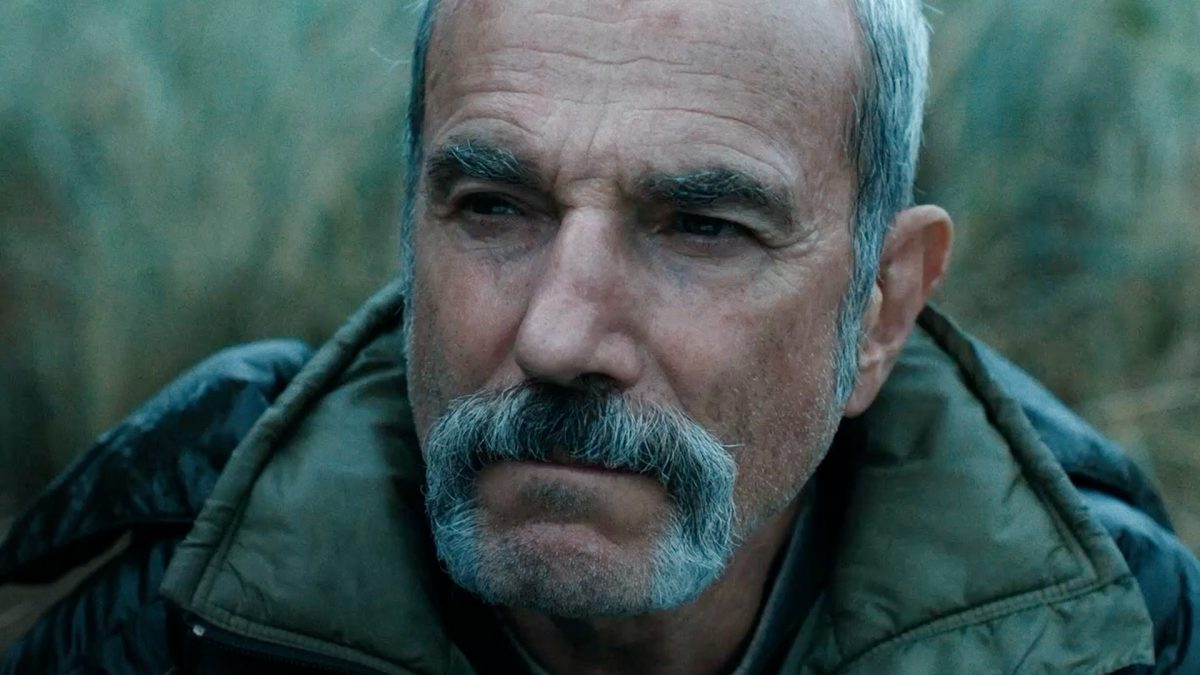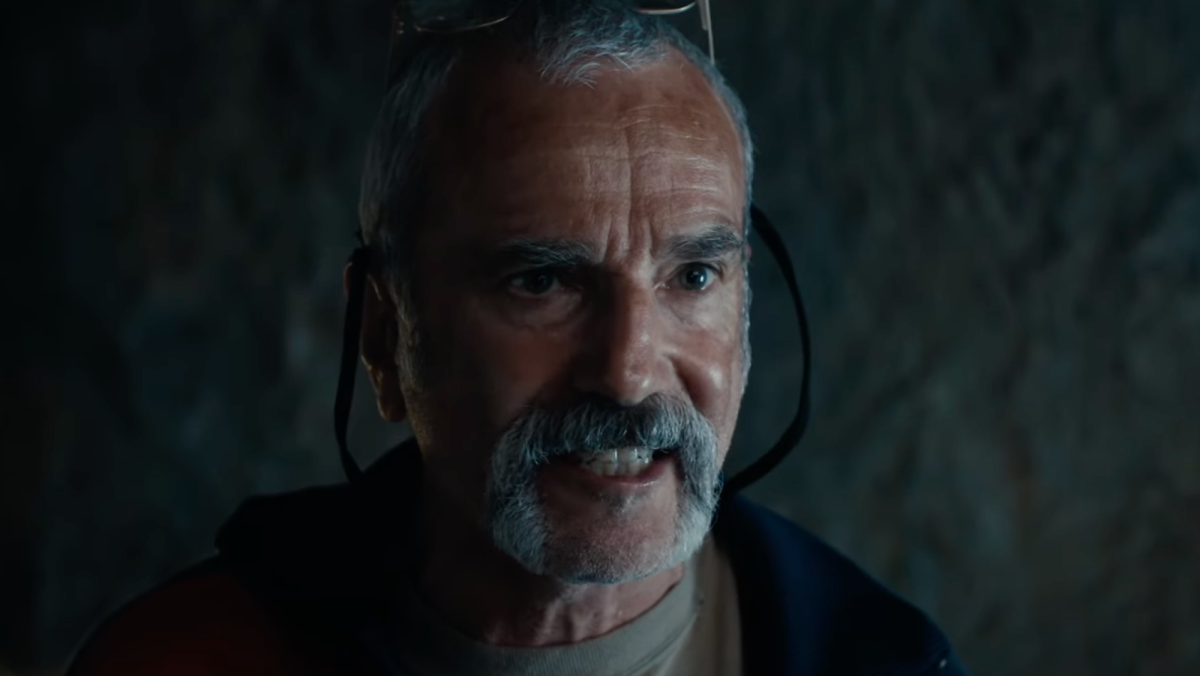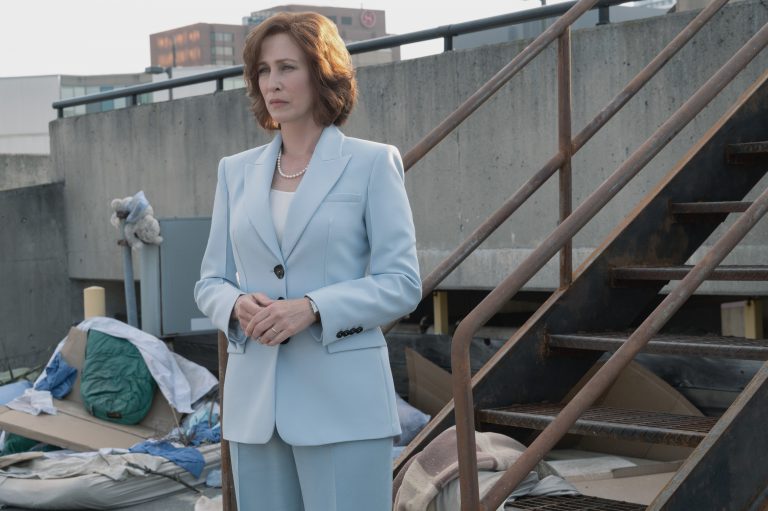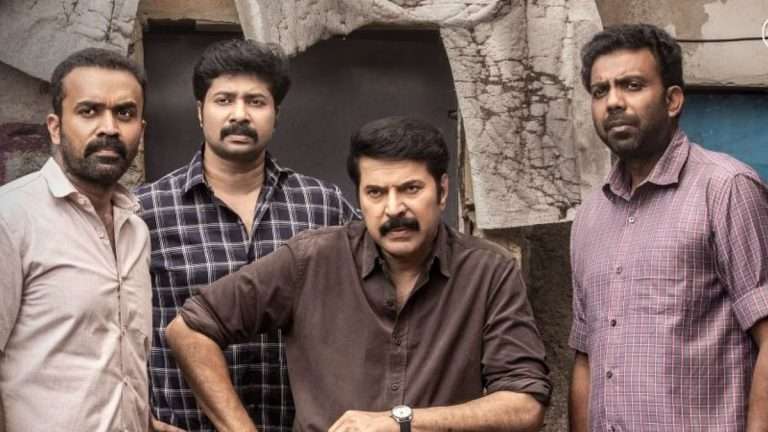Although Daniel Day-Lewis had suggested his retirement at several points in his career, it seemed as if 2017’s “Phantom Thread” truly marked his final screen appearance. Day-Lewis had already set a record by winning three Academy Awards (the most of any male actor, tied with Walter Brennan and Jack Nicholson), and was largely considered to be one of the all-time greats.
The calculated, rigorous process Day-Lewis went through within each performance became a story in its own right. His style wasn’t as much “method acting” as it was “complete immersion.” Given that Day-Lewis’s track record was rather spotless, it seemed fitting that he would close off his career with a well-liked drama about an obsessive artist.
The news of Day-Lewis’s return was certainly met with excitement, but “Anemone” wasn’t merely a vehicle for his comeback. Rather, it’s the most involved Day-Lewis has ever been within the creative process of a film, as “Anemone” is a passion project that he wrote with his son, Ronan. A visual artist with a background in both painting and sculpture, Ronan Day-Lewis has instantly announced himself as a major filmmaker. Though “Anemone” falters in pacing and structure, the father-son duo infuses it with exhilarating energy, particularly as it explores a complex family narrative.
“Anemone” is often wordless, as the junior Day-Lewis’s background in experimental art is apparent within a film that values expressionism over naturalism. It’s remarkable that in the film’s opening scenes, in which little to no dialogue is spoken, it’s impossible not to be intrigued by the cryptic, borderline surrealist depiction of nature at its most cacophonic.
The elder Day-Lewis is playing another reclusive, emotionally damaged character, but Ray Stoker is even less removed from society than Daniel Plainview or Reynolds Woodcock. Once a member of the Irish military defense during “the Troubles,” Ray has remained in solitude in the woods for two decades, leaving his wife, Nessa (Samantha Morton), to raise their son Brian (Samuel Bottomley).

Also Read: 20 Great Drama Movies of World Cinema
Ray’s tranquil isolation is disrupted by an appearance by his brother, Jem (Sean Bean), who has sought him out in the midst of a family crisis. Although it’s clear that Ray has reckoned with the violence within himself, it appears that Brian has inherited some of these mental health challenges. After an unusual act of aggression, Brian has kept his lips sealed, offering no signs that he can be reasoned with. Although Nessa is helpless to watch her son slip into darkness, Jem believes that Ray might be convinced to aid his son in this time of need.
Most of “Anemone” consists of Ray and Jem locked within the confines of his remote retreat, which is beautifully framed as a timeless void. The routine Ray has constructed for himself is an intense one, as maintaining a home without modern technology or any form of communication has forced him to be primal in his survival techniques.
As abrupt and abrasive as it can be to switch between contemporary scenes of Brian and the atmospheric, haunted space that his father exists in, “Anemone” effectively explores the lengths a man might go to in order to completely remove himself from the world. Ray’s guilt has not driven him to necessarily inflict self-punishment, but he clearly sees himself as a danger to the world beyond. The specificity of his living conditions is informed by critical details about his background, which “Anemone” carefully sprinkles throughout before delivering a few heartbreaking reveals.
To say that Day-Lewis is phenomenal will shock no one, but “Anemone” sees him operating in a different register than his other historical characters. There’s an entire history that motivates Ray’s spiteful, cantankerous energy, as he seems to wage arguments with Jem that he has seemingly played out in his head for twenty years.
Although there’s a surprising undercurrent of dark humor that emerges as he and Jem share stories of their childhood, any fleeting moments of levity represent a means for Ray to cope with his pain. Even if there was a specific incident that caused his life to spiral out of control, there are allusions to various traumatic incidents that shaped the terse, cynical outlook he came to adopt.
Bean is an actor who has long been underrated, and gives a surprisingly graceful, kindly performance that is still cut from the same gritty world that Ray emerged from. There’s no question that Jem has also faced his own hardships, and in many ways, he’s come to accept that Ray is no longer the man he grew up with.
While Jem’s mission is initially one conducted out of concern for Brian, it transforms into a moving dynamic of rediscovery and compassion. Even if they’ve lived what may feel like a lifetime since their last encounter, Ray and Brian share a deep fraternal connection built on a mutual ability to give each other space. The pacing is at times glacial, but the nuances within Day-Lewis and Bean’s performance never fail to be riveting.

Must Check Out: 25 Best Oscar Winning Performances (Male)
“Anemone” is at its weakest in the middle section, in which the friction between Ray’s restraint and Brian’s urging becomes repetitive. While it’s refreshing that their relationship never becomes one of dramatic animosity, it does become a bit tedious, particularly when Brian and Nessa are given so little to do. However, any lost inertia is almost instantly regained within the film’s powerful final chunk, in which Day-Lewis moves Ray in directions that are both inevitable and emotionally exhilarating. “Anemone” is at its best when its fragmented narrative is presented like a fable, and Day-Lewis is certainly an actor who can encapsulate that mythic quality.
Those expecting a signature monologue from Day-Lewis will certainly not be disappointed, as “Anemone” contains two outstanding passages. The first is a fiery, memorable introduction that perfectly establishes the film’s unusual tone, and the second is a crushing moment of emotional catharsis that will certainly rank among the greatest moments of acting in Day-Lewis’s entire career.
Despite the ethereal, dreamlike spell that “Anemone” casts, it’s also surprisingly relevant. The film is able to address the fragility of masculine depression that has made it so difficult for men like Ray and Brian to heal, and also offers some impactful political commentary that ties in nicely to the work Day-Lewis did previously in “My Left Foot,” “In The Name of the Father,” and “The Boxer.”
“Anemone” is a showcase for one of the greatest actors of all time, but it doesn’t feel crafted by ego or a desire to shock. Perhaps both generations of Day-Lewis men needed each other to create such a unique collaboration.
Daniel Day-Lewis may have only felt empowered to work on a project with such a personal tilt, and Ronan Day-Lewis may have needed a towering actor like his father to bring the emotional weight to such a stylized work. The result is a dazzling experience that highlights a transcendent moment for two artists; one is in the later days of a fruitful career, and the other is on his way to building a legacy of his own.



![Demolition Girl [2019]: ‘Japan Cuts’ Review- A Soul-Crushing Coming-of-age Drama](https://79468c92.delivery.rocketcdn.me/wp-content/uploads/2019/08/D-Girl-1-548x365.jpg)

![The Criminal Man (Borotmokmedi) [2019]: ‘Venice’ Review – Making A Murderer](https://79468c92.delivery.rocketcdn.me/wp-content/uploads/2019/09/borotmokmedi-The-Criminal-Mind-2019-Venice-768x512.jpg)
![In the Heart of the World [2019]: ‘IFFR’ Review – A Vibrantly Shot Social Drama](https://79468c92.delivery.rocketcdn.me/wp-content/uploads/2019/05/de47dad1-d1fb-484c-b284-ae0451ebe728-768x432.jpg)
![On Body and Soul [2017] Review: The Dream and The Dreary](https://79468c92.delivery.rocketcdn.me/wp-content/uploads/2019/05/On-Body-and-Soul-High-on-Films-768x467.jpg)
